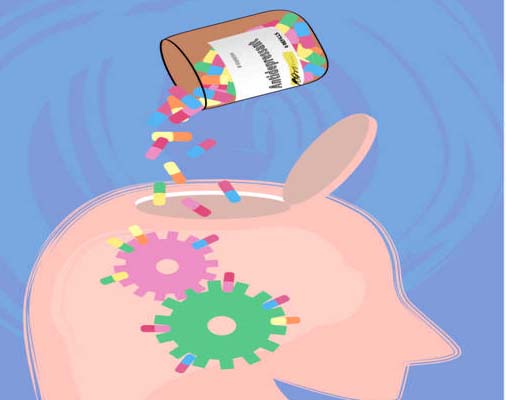Toronto
Taking antidepressants during pregnancy may increase the risk of your baby developing birth defects, a new study has found.
The risk — 6 to 10 per cent — is high enough to merit caution in their use, especially since they are only marginally effective in most cases, researchers said.
“In pregnancy, you’re treating the mother but you’re worried about the unborn child, and the benefit needs to outweigh the risk,” said Anick Berard, professor at Universite de Montreal (UdeM) in Canada.
The study is among the first to examine the link to birth defects among depressed women.
Researchers looked at 18,487 depressed women in the Quebec Pregnancy Cohort, a longitudinal, population-based grouping of 289,688 pregnancies recorded between 1998 and 2009.
Of the women studied, 3,640 — about 20 per cent — took antidepressants in the first three months.
“We only looked at the first trimester, because this is where all the organ systems are developing. At 12 weeks of gestation, the baby is formed,” said Berard.
Antidepressant use during this critical time-window has the potential to interfere with serotonin intake by the foetus, which can result in malformations.
“Serotonin during early pregnancy is essential for the development of all embryonic cells, and thus any insult that disturbs the serotonin signalling process has the potential to result in a wide variety of malformations,” researchers said.
For example, when Celexa (the brand name for citalopram) was taken in the first trimester, the risk of major birth defects jumped from five per cent to eight per cent. In all, 88 cases of malformations were linked to use of the drug.
Similarly, use of Paxil (paroxetine) was associated with an increased risk of heart defects; venlafaxine (Effexor), with lung defects; and tricyclic antidepressants (such as Elavil), with increased eye, ear, face and neck defects.
Depression is on the rise across the globe and is a leading cause of death, according to the World Health Organisation (WHO).
Depression is particularly serious during pregnancy, and doctors — especially psychiatrists, obstetricians and other specialists — are prescribing more antidepressants than ever to expectant mothers.
Over the decade or so that Berard studied her cohort, the proportion of expectant mothers on antidepressants in Quebec doubled, from 21 users per 1,000 pregnancies in 1998 to 43 per 1,000 in 2009.
“There are a multitude of ways to get mild to moderate depression treated, but you need to have the time and money and also the encouragement to take advantage of them,” Berard said.
“Given that an increasing number of women are diagnosed with depression during pregnancy, the new results have direct implications on their clinical management,” researchers said.
The study was published in the British Medical Journal.
Breaking News
 Driving Naari Programme launched in Chandigarh
Driving Naari Programme launched in Chandigarh Punjab farmers reaping benefits of Mann Government’s crop diversification initiatives
Punjab farmers reaping benefits of Mann Government’s crop diversification initiatives Punjab and Kerala Join Hands to Address NRI Concerns
Punjab and Kerala Join Hands to Address NRI Concerns Macron refuses French Prime Minister’s resignation after chaotic election results
Macron refuses French Prime Minister’s resignation after chaotic election results Modi lands in Russia for first visit since Ukraine offensive
Modi lands in Russia for first visit since Ukraine offensive Saudi Arabia approves granting citizenship to global experts under Vision 2030
Saudi Arabia approves granting citizenship to global experts under Vision 2030 Vigilance arrests Panchayat Secretary, former Sarpanch for embezzlement in Panchayat funds
Vigilance arrests Panchayat Secretary, former Sarpanch for embezzlement in Panchayat funds Housing crisis in Canada forcing residents to move out of pricier cities: Poll
Housing crisis in Canada forcing residents to move out of pricier cities: Poll Historic Milestone: Canada Appoints Its First Female Chief of Defense
Historic Milestone: Canada Appoints Its First Female Chief of Defense Victory parade of T20 World Cup-winning Indian cricket team concludes in Mumbai
Victory parade of T20 World Cup-winning Indian cricket team concludes in Mumbai Maximizing impact of Aadhar in Punjab
Maximizing impact of Aadhar in Punjab Amritpal Singh to take oath as Khadoor Sahib MP on July 5
Amritpal Singh to take oath as Khadoor Sahib MP on July 5




































